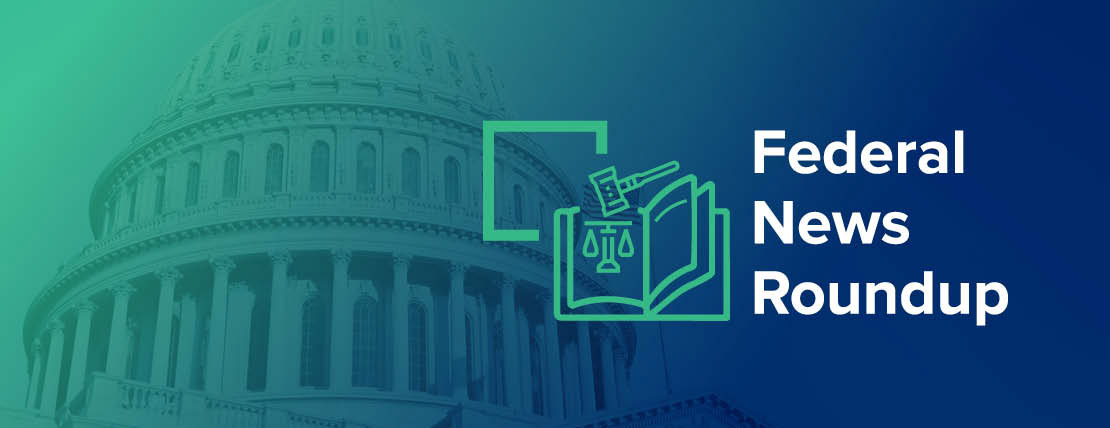- Schumer Bill Seeks to Reverse Cuts to Healthcare, Including Medicaid
- Legislation Seeks to Increase 401(k) Access to Young Workers
- Bill Aims to Strengthen Healthcare-Based ‘No Surprises Act’
- Senate Committee Unanimously Advances Pair of ESOP Bills
- NLRB’s Acting General Counsel Issues Memo on ‘Salting’ Cases
- Senate Committee Reverses EBSA Funding Cuts
Schumer Bill Seeks to Reverse Cuts to Healthcare, Including Medicaid
Senate Minority Leader Chuck Schumer (D-New York) on Monday, Aug. 4, introduced the Protecting Health Care and Lowering Costs Act (S. 2556), which aims to repeal healthcare cuts in the recently signed H.R. 1 law (also known as the One Big Beautiful Bill Act), including those to Medicaid, and permanently extend the Affordable Care Act premium tax credits that are set to expire at the end of this year.
According to Congressional budget estimates, H.R. 1 would decrease Medicaid spending by around $1 trillion by 2034 and increase the number of uninsured individuals by 10 million.
Medicare strongly influences market prices due to its outsized role as a payer in the U.S. healthcare system. Notably, many rates from private insurance providers are explicitly tied to Medicare payment rates. Research published in a 2017 edition of the Journal of Political Economy found a $1 change in Medicare payment rates results in a $1.16 change in private insurer payment rates. Given private payers constitute a larger share of payments, the indirect effect of Medicare rates on inflation is most likely larger than the direct effect.
Also, healthcare pricing changes can significantly affect inflation overall, which generally affects employees’ buying power and might influence salaries down the road. At the very least, rising inflation may make total rewards programs (e.g., those on financial literacy) even more important to organizational employees.
Legislation Seeks to Increase 401(k) Access to Young Workers
Reps. Brittany Pettersen (D-Colorado) and Mike Rulli (R-Ohio) recently introduced the Helping Young Americans Save for Retirement Act (H.R. 9281), which would allow workers between the ages of 18 to 20 greater access to employer-sponsored retirement plans. Bill Cassidy (R-Louisiana) and Tim Kaine (D-Virginia) introduced companion legislation in the Senate (S. 1707).
Currently, the Employee Retirement Income Security Act (ERISA) only requires employers that offer 401(k) plans to make the plans available to employees aged 21 or older. While an organization can offer a 401(k) plan to workers under 21 years old, many do not due to high costs and excessive red tape. According to Pettersen, among employers that offer retirement plans, 40% have a minimum age of 21 to participate.
The House of Representatives bill seeks to:
- Require employers to offer 401(k) plans to employees as young as 18; and,
- Reduce regulatory burdens that preclude employers from offering these plans to workers under age 21.
“If you’re old enough to fight for your country at 18, you should be able to fight for your financial future, too,” said Rulli in a press release. “In the face of the largest generational wealth gap in American history, it’s time we give young people every tool to get ahead.”
The House bill was referred to the Committee on Ways and Means, as well as the Committee on Education and the Workforce. The Senate bill was referred to the Health, Education, Labor and Pensions (HELP) Committee.
Bill Aims to Strengthen Healthcare-Based ‘No Surprises Act’
Sens. Roger Marshall (R-Kansas) and Michael Bennet (D-Colorado) recently reintroduced the No Surprises Act Enforcement Act (S. 5535) aimed at reinforcing protections against “surprise” (or unexpectedly high) medical bills (i.e., providers charging healthcare plan holders abrupt out-of-network rates for certain services).
This bill seeks to close enforcement gaps in the No Surprises Act, initially enacted in 2020, by increasing penalties for noncompliance with payment deadlines.
“Surprise medical bills can have devastating economic impacts on families,” stated Marshall in a press release. “Our legislation ensures out-of-network medical bills are resolved promptly and fairly, with enhanced penalties [up to $10,000 per violation] for any failure by the health insurers to do so.”
Bennet added the legislation, which was referred to the HELP Committee for consideration, would ratchet up compliance expectations for — and outcomes from — healthcare providers and insurers.
The House has a companion bill (H.R. 4710) that was introduced by three Republicans and three Democrats. That legislation was referred to the Committee on Energy and Commerce plus two other committees (Education and Workforce, and Ways and Means).
Senate Committee Unanimously Advances Pair of ESOP Bills
The Senate’s HELP Committee voted unanimously July 31 to advance two significant bills that seek to promote and protect employee stock ownership plans (ESOPs).
The Retire through Ownership Act (S. 2403), sponsored by Kansas’ Marshall and Virginia’s Caine, clarifies what is referred to as the “adequate consideration” standard for ESOP stock purchases under ERISA, providing a safe harbor for fiduciaries who rely “in good faith” on valuations prepared by independent experts in accordance with the Internal Revenue Service’s Revenue Ruling 59-60.
If enacted, the legislation would end regulatory uncertainty and legal exposure for ESOP trustees and sellers, which has been a longstanding barrier to broader ESOP adoption.
The Employee Ownership Representation Act (S. 1728), sponsored by Sen. Bill Cassidy (R-Louisiana), with amendments by Sen. Maggie Hassan (D-New Hampshire), would cement ESOP representation at the federal Department of Labor (DOL) by:
- Adding two seats for employee ownership experts to the ERISA Advisory Council;
- Establishing an employee ownership advocate within the DOL; and,
- Codifying and expanding the Employee Ownership Initiative, which was originally created by the SECURE 2.0 Act of 2022.
Under the Hassan amendment, S. 1728 would apply to all ESOPs (S corps and C corps).
The two bills now head to the Senate for full consideration.
NLRB’s Acting General Counsel Issues Memo on ‘Salting’ Cases
In a July 24 memo, William Cowen, acting general counsel of the National Labor Relations Board (NLRB), ordered prosecutors to pursue investigations into the employment intentions of “union salts.” This communique will likely make it harder for those workers to prove they were discriminated against.
Memorandum GC 25-08 provides guidance for the independent federal agency to investigate refusal-to-hire and refusal-to-consider-for-hire cases tied to “salting.” The memo defines salting as “the act of a trade union in sending a union member or members to an unorganized jobsite to obtain employment and then organize the employees.”
The memo referenced the 2007 case Toering Electric Co., where the NLRB modified the legal standard for determining whether a job applicant in a salting case is entitled to protection as a Section 2(3) employee under the National Labor Relations Act (NLRA). Under that law, applicants are generally considered employees and protected from discrimination.
In Toering, though, the board determined those protections were being abused in cases where union representatives “have engaged in conduct clearly intended to provoke a decision not to hire them or have engaged in antagonistic behavior toward the employer that is wholly at odds with an intent to be hired.”
To address such occurrences, the board placed the burden on the general counsel position to “[in salting cases,] prove, by a preponderance of the evidence, that the individual in question was genuinely interested in seeking to establish an employment relationship with the employer.”
In discussing the impact of the memo, Daniel Sobol, a lawyer at Blank Rome LLP, stated, “By making the factor a threshold issue in investigations, Cowen’s memo effectively makes it so the charging party in a salting case must be able to show their interest was genuine for their case to proceed. … In the investigatory stage, before the charged party even gets involved, the burden is going to be on the charging party to establish a sincere desire to work. And, I think that’s going to be looked at with more scrutiny going forward.”
Senate Committee Reverses EBSA Funding Cuts
The Senate Appropriations Committee voted 26-3 on July 31 to approve a government funding package that financially supports the DOL’s Employee Benefits Security Administration (EBSA).
The Senate’s Fiscal Year 2026 Labor, Health and Human Services, Education and Related Agencies Appropriations Act bill held EBSA’s 12-month funding steady at $191.1 million. The Trump administration had proposed cutting the agency’s funding 5.2%, to $181.1 million.
EBSA was established to protect the rights and benefits of participants in employer-sponsored retirement and health plans. It pursues this through education, compliance assistance and enforcement of ERISA provisions.
Editor’s Note: Additional Content
For more information and resources related to this article, see the pages below, which offer quick access to all WorldatWork content on these topics:








